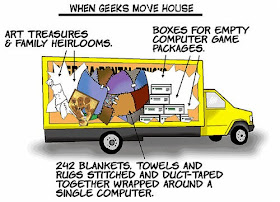 |
| “To Atlantic Avenue” Believe it or not, the photo above is actually of a miniature sculpture by artist Alan Wolfson. You can see more of his work in The Huffington Post’s recent article. |
“New York is my campus. Fordham is my school.” This is Fordham’s (relatively new, I believe) slogan. Though I’m sure it’s mostly meant to describe undergrads who are often asked to incorporate the city into their class assignments, our lives as graduate students are also influenced by the location of our school.
This blog is about graduate life in general but also about Fordham in particular, and I recently realized that I haven’t really talked much about the experience of going to school in a boroughs of NYC. Maybe that’s because I grew up right across the river and don’t remember my first visit to the city. The skyline was always just there (trust me, it’s a way better view from the NJ side of the river). In any case, it’s certainly true that city life is a big part of a Fordham grad. student’s experience.
In fact, because so many graduate students commute, either from another burrow or another state, New York City’s public transportation system is something many of us are forced to become intimate with. And, let me tell you, intellectual stimulation happens on the go as well. For example, as my friend was re-reading Frankenstein for her comps. exam on her commute home one day, she got hit on no less than three times, and every guy mentioned the book she was reading as an opening. One guy even tried to start a discussion of “transhumanism.” No, I’m not joking.
I often find myself wanting to record events I observe on my commute home, especially on the subway. I had a friend who once told me that she prefers NYC’s public transportation system to anywhere else’s because “nobody will bother you if you cry on the subway in New York.” Her observation points to why observing people on the NYC subway is so interesting—NYC’s anonymity really encourages people to act like nobody is watching, even in public. Which makes them perfect to watch!
Riding the subway when I’m just coming home from class and am already primed for analysis makes me feel kind of like an anthropologist in the field. Sometimes, I even take notes:
An Excerpt from “The Subway Diaries”
Why is it that people sit next to themselves on the subway?
The South Asian man sits next to the South Asian woman, the black woman next to another black woman, the stereotypical Hispanic man next to yet another stereotypical Hispanic man..and the short, pale brunette with the pointy nose next to me.
So many other choices of empty seats, but the woman who chose to sit next to me could play my stunt double in a movie.
Sure, you could just do your homework on the commute home. But what’s the point of going to grad. school in the city if you can’t analyze it to death? Right?


